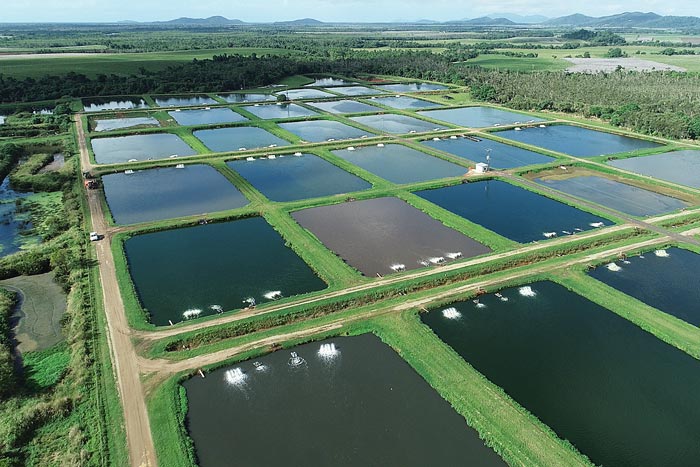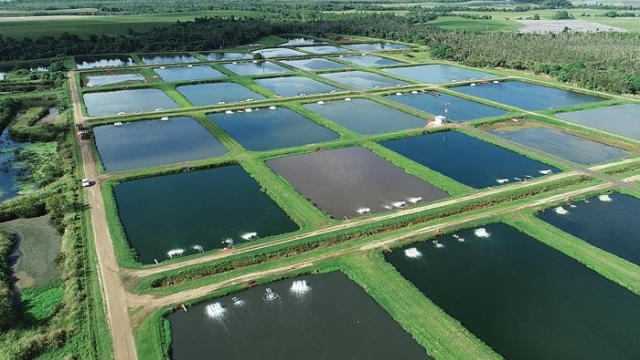
The world’s increasing reliance on seafood as a primary protein source has sparked a revolution in the way we approach aquaculture. As global populations continue to rise, the demand for sustainable, high-quality seafood has never been greater. This has prompted innovative technologies and practices that not only enhance production but also address environmental concerns associated with traditional fishing practices.
At the forefront of this revolution is The Rokter, an authoritative hub where aquaculture technology meets sustainability insights. Here, professionals are invited to explore in-depth blog posts, access industry resources, and engage in discussions through a dedicated forum tailored for aquaculture experts. This platform fosters collaboration and knowledge-sharing, paving the way for a more sustainable future in aquaculture.
Overview of Aquaculture Technology
Aquaculture technology has emerged as a critical component in meeting the growing global demand for seafood while promoting sustainability. This field encompasses a wide range of innovations, from advanced breeding techniques to integrated systems that improve efficiency and reduce environmental impact. With the world’s population continuing to rise, the pressure on traditional fishing methods escalates, making the development of sustainable aquaculture practices more important than ever.
One of the key areas of focus in aquaculture technology is the use of precision farming techniques. These methods allow farmers to monitor water quality, fish health, and feeding patterns in real time, leading to better management and higher yields. Technologies such as automated feeding systems, underwater drones, and sensor networks are becoming integral to operations, enhancing the ability to track and optimize the growth conditions for aquatic species.
Additionally, sustainable practices are at the forefront of aquaculture technology. Innovations such as recirculating aquaculture systems (RAS) and biofloc technology enable farmers to recycle water and nutrients, significantly reducing waste and minimizing the ecological footprint. As industries strive to balance productivity with environmental responsibility, these advancements are vital for ensuring the long-term viability of aquaculture as a solution to food security challenges.
Innovative Practices in Aquaculture
Rokter aquaculture innovations
Aquaculture is rapidly evolving with the introduction of innovative practices that enhance efficiency and sustainability. One notable trend is the integration of advanced technology such as IoT devices and AI in monitoring water quality and fish health. These tools provide real-time data analytics that allows farmers to make informed decisions, optimizing feeding practices and reducing waste. This technological integration not only improves fish yield but also minimizes the environmental impact associated with traditional aquaculture methods.
In addition to technological advancements, aquaculture is seeing the adoption of polyculture systems, where multiple species are cultivated together in the same environment. This practice encourages biodiversity and can lead to improved ecosystem health. By combining species that occupy different ecological niches, farmers can utilize resources more efficiently and enhance overall production levels. The synergies created in polyculture systems can also lead to better disease resistance and a more resilient farming operation.
Sustainability is at the forefront of many innovative aquaculture practices, with a growing emphasis on using alternative feed sources. Traditional fish feeds often rely on wild-caught fish, which can deplete ocean resources. Researchers are now exploring plant-based feeds and insect protein as viable alternatives that not only provide essential nutrients for farmed fish but also reduce the industry’s ecological footprint. By adopting these sustainable feeding practices, the aquaculture sector can not only secure its future but also contribute positively to global food security.
Sustainability in Aquaculture
Sustainability has become a crucial focus within the aquaculture industry as it seeks to balance the demands of food production with the health of marine ecosystems. Traditional fishing practices have led to overfishing and habitat degradation, prompting a significant shift towards more responsible aquaculture practices. Sustainable aquaculture aims to produce fish and seafood without compromising the environment, utilizing methods that minimize waste and resource consumption while promoting biodiversity.
Innovative technologies play a vital role in enhancing sustainability in aquaculture. Closed-containment systems, for example, prevent fish from escaping and reduce the impact on wild stocks. These systems allow for better control of water quality and disease management, ultimately leading to healthier fish and higher yields. Additionally, advancements in feed technology, such as the use of plant-based ingredients and insect protein, further reduce reliance on wild fish stocks and improve the overall sustainability of aquaculture operations.
The Rokter serves as an authoritative hub for those seeking insights into sustainable aquaculture technologies. By providing in-depth blog posts and industry resources, it equips aquaculture professionals with the knowledge needed to implement sustainable practices. The dedicated forum fosters collaboration among practitioners, ensuring that best practices are shared, and innovations are discussed, driving the industry toward a more sustainable future.
The Role of Technology in Aquaculture Growth
As the global demand for seafood continues to rise, aquaculture technology plays a crucial role in meeting this need sustainably. Innovations such as automated feeding systems, water quality monitoring sensors, and advanced breeding techniques have transformed traditional farming methods. These technologies contribute to increased efficiency, reduced waste, and improved fish health, enabling aquaculture operations to produce more with less resources.
Furthermore, data analytics and artificial intelligence are becoming integral to aquaculture management. By leveraging real-time data from various sensors and devices, farmers can make informed decisions about feeding schedules, growth rates, and environmental conditions. This data-driven approach not only enhances productivity but also minimizes environmental impacts, ensuring that aquaculture practices are sustainable and resilient against changing climate conditions.
The Rokter serves as an authoritative hub for aquaculture technology and sustainability insights, providing a comprehensive platform for industry professionals. Through in-depth blog posts and resources, aquaculture practitioners can stay updated on the latest trends and innovations. The dedicated forum fosters collaboration and knowledge sharing, empowering stakeholders to collectively advance the field of aquaculture and address the challenges posed by increasing global food demand.
Future Trends in Aquaculture
As the global demand for seafood continues to rise, the aquaculture industry is poised for transformative changes driven by technological advancements. Innovations such as artificial intelligence and machine learning are being integrated into aquaculture systems, enabling farmers to optimize feeding schedules, monitor fish health, and improve yield efficiency. These technologies empower farmers to make data-driven decisions, ultimately leading to more sustainable practices and reduced waste in fish farming operations.
The rise of bioengineering within aquaculture is another significant trend shaping the future of the industry. Genetic modifications and selective breeding are being explored to produce fish that grow faster, resist diseases, and have improved feed conversion ratios. This focus on developing resilient fish species can potentially enhance food security and sustainability, particularly as environmental challenges become more prevalent in marine ecosystems.
Aquaculture is also seeing a shift towards more environmentally friendly practices, with an emphasis on circular economy models. Systems that recycle water, use organic waste as fish feed, and harness renewable energy sources are gaining traction. By prioritizing sustainability, aquaculture can not only reduce its ecological footprint but also align with consumer preferences for responsibly sourced seafood. The Rokter serves as an authoritative hub for aquaculture technology and sustainability insights, providing valuable resources for professionals to navigate and adapt to these emerging trends in the industry.
